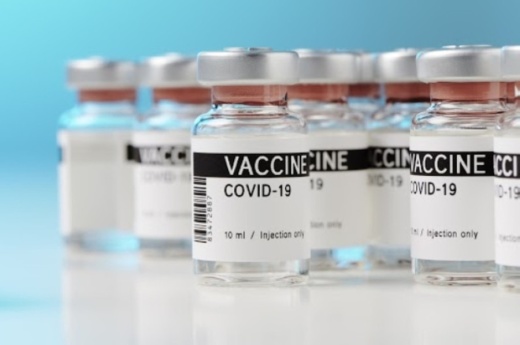To promote accurate information, George hosted a virtual question-and-answer event with Dr. Peter Hotez, dean of the National School of Tropical Medicine at the Baylor College of Medicine.
Questions were asked by George, and answers were given by Hotez. The conversation has been edited for length and clarity.
How can we trust that the COVID-19 vaccine is safe?
These vaccines are tested in large clinical trials of 30,000 to 60,000 people. The trials are big studies done over several months, and the results have shown an incredibly good track record of safety.
These vaccines have been given to at least 20 million Americans, and if there was a common severe adverse effect, you would have heard about it.
We're seeing a very low number of severe allergic reactions in people who receive the vaccine. Ultimately, in the millions of doses that have been administered, we've not seen any untoward effect. It is really important for you to get vaccinated.
Which vaccine would you take? Which vaccine would you tell your mother or grandmother to take?
All of last year I said I would take the first vaccine offered to me that's authorized by the FDA, and that’s what I did. I was offered the Pfizer vaccine, and I took it. My special needs daughter was offered the Moderna vaccine, and she took it.
We're racing against the new variants coming in, so get whatever vaccine you can. Whatever you're offered, if it's authorized by the FDA, take it. The FDA has an extraordinary track record of releasing safe and effective vaccines.
If I’ve already had COVID-19, do I need to get a vaccine?
We're learning that the length of protection is not as long as we had hoped. For instance, in Manaus, Brazil, where people got infected at a pretty high rate early on, we're already seeing pretty high rates of reinfection. How much of that is due to the new variant versus the immunity wearing off, we don't know.
I was hoping the protective immunity would last longer, but all we really can say for sure is about four or five months. It probably does protect longer, but the point is, if you've been infected before, you still want to get vaccinated. It’ll give you stronger, more durable and more long-lasting protection.
Should someone who is pregnant or planning to get pregnant get the vaccine?
Based on what we've seen, pregnant women don't do well with this virus. Many have been hospitalized or admitted to intensive care units and become at risk of losing their baby as well. So I’m of the opinion getting vaccinated.
Additionally, there are other findings that are kind of interesting, in that if a pregnant woman does get vaccinated, those antibodies could potentially transfer from mom to the baby, and the baby will have antibodies when it is born. We've been using that strategy now for years to vaccinate moms against whooping cough and tetanus and the flu, to protect the baby when the baby is born. So remember, you're getting vaccinated not just for you, but for your baby, too.
Who should not get this vaccine?
There are very few people who should not get a vaccine. Basically, only those who have a known severe allergy to something in the vaccine.
It’s important to note that this is not a live virus vaccine. I say that because certain immune-compromised people should not get live virus vaccines, such as the measles vaccine or yellow fever vaccine, but this is not a live virus vaccine, so even those people can get it.
What happens if you get a first dose of the COVID-19, and then your second dose is delayed?
If your second dose is late, it won't diminish the first, but you have to remember that the single dose provides incomplete protection. You're still vulnerable after getting the first dose, so the longer you wait in between doses, the longer you are vulnerable to getting sick from COVID-19.
Do you think all children will be able to safely return to school in the fall?
I'm hopeful for that. By then, it's likely that at least all teachers, bus drivers and staff will be vaccinated. Many parents will be vaccinated, too.
We'll start having some pediatric vaccine trials soon, too. Hopefully that will show that it's safe to start vaccinating adolescents and kids, which would make it even more likely. I'm pretty optimistic.
What about herd immunity? What percentage of people in our community do you think need to be vaccinated to reach herd immunity?
It's a pretty high bar. It's at least three quarters of a population, and now with the new variants that are even more transmissible, you may have to get to 80%-90%. That’s why we have to get a lot of the vaccine out there.
We're going have to accelerate to 3 million immunizations a day in this country, and we're barely at 1[million]-1.5 million, so there's a lot of work ahead of us.
Will we need to continue wearing masks once herd immunity is reached?
It all depends on whether we get additional variants by then, so it's hard to project so far in advance.
I'm hopeful that we'll get to a point where enough people get vaccinated that we stop transmission and the masks can come off. That's the goal, but I don't see us getting there before the summer, so we'll be wearing masks for at least next few months.





